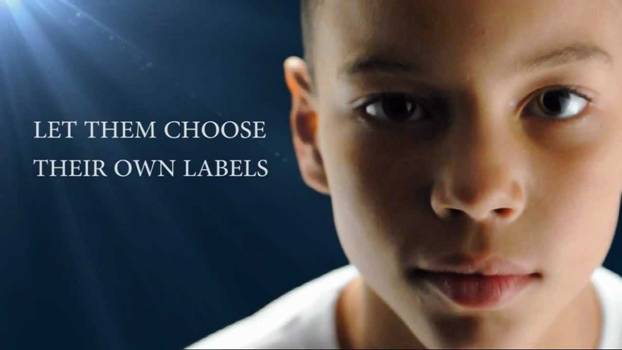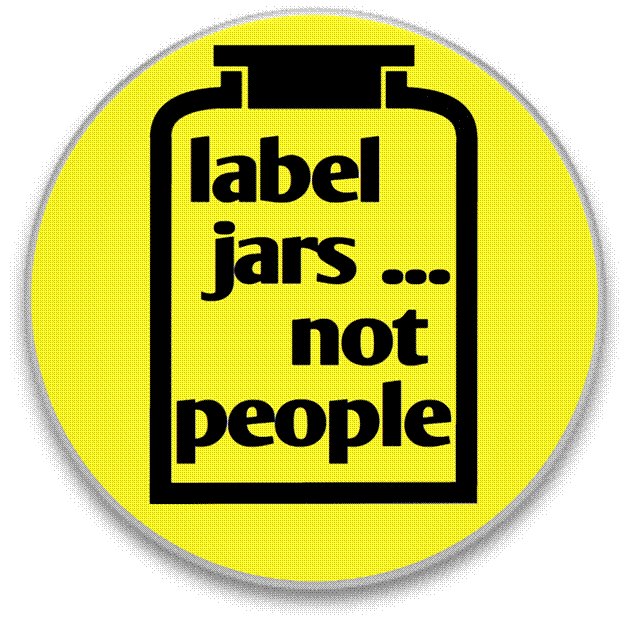
This story illustrates the danger in putting labels on people. I hope it will show you why I always tell parents “Don’t put labels on kids”.
This week, I met Lena, 22-year-old girl who was diagnosed with anxiety disorder. She was so anxious she was afraid to run in the park because “people look at her.” She came to see me through a referral, with the support of her mom who was a doctor and was exhausted form seeing so many doctors and so many therapists and psychologists.
When I asked her mom, “What do you mean by ‘so many’?” she said that Lena had been in treatment for 10 years and been taking medication for that long.
“Does the medication help?” I asked.
“No”, she said, “She is at home, in her room, afraid to leave the house and the medication does nothing at all. If anything, things only got worse over the years”.
“Then why aren’t you considering stopping the medication?” I asked.
“Her doctor thinks things will get worse without it”.
Catch 22, right?
When Lena came, I could no longer discuss the issue with her mom, because legally, Lena was an adult and I had the privacy obligation not to discuss her coaching with anyone else. When she came, I tried to figure out what happened that had gotten her to where she was and things fad gotten so out of hand to the point of shutting herself at home and refusing to leave.
As I’ve said many times, being a life coach is like being a detective. I was trying to solve the puzzle of Lena’s story so that I could find a good strategy to help her. She was with me for 3 hours and she was in tears most of that time.
Lena was born to a traveling family. With her parents and brother, she travelled from one place to another, lived on a boat and in a caravan and life was heaven. At the age of 6, after being so isolated from social interaction, her parents decides to settle down in one place and send the kids to school, but with limited social skills, Lena struggled to make friends. She was brilliant, but she didn’t fit in.
At the age of 9, she was diagnosed with anxiety disorder and from that moment on, she has been walking around with this label everywhere she went. In school, she was labeled with anxiety disorder. When she want to see a psychologist she was diagnosed with it. When she went to see a psychiatrist, she was prescribed anxiety medication and has been taking it for over 10 years.
At the age of 18, she started self-harm and the medication only increased in dosage. Things get worse and everyone thinks it’s because the medication is not working. I thought the medication worked perfectly! It did exactly what it was supposed to do – it numbed the feeling. In order to feel something, she tried to cut herself! Worked perfectly! Why increase the dosage?!
I asked Lena about all the therapists she had seen and none of them had tried to teach her coping strategies for social interactions. She was convinced she was simply anti-social. When I asked her about her friends, she said she had a very good friend from 9th grade and when she talked about that friend, she was happy, almost glowing. I asked her to describe her relationship with her friend and she described some real fun things they did together and expressed a lot of love and care for that friend.
“If you are anti-social, how do you explain this wonderful relationship you have with your mom and with your friend Lauran”, I asked her.
She didn’t know what to say. Someone had labeled her as anti-social and she had adopted that label, just like someone had labeled her as having anxiety disorder and she (and her parents) had totally accepted it.
My work with her was not about her anxiety. It was more about peeling the anti-social and anxiety labels off her sense of identity. I talked to her about the danger of labels and showed her this video.
For the last hour, I taught her some NLP techniques to manage fear and help her feel safe and protected. She smiled, she laughed (and said she didn’t know why she was laughing), she expressed optimism and set 3 fantastic, specific and clear goals to take her forward.
There was a huge difference between the crying girl that came in and the smiling girl that came out of my life coaching deck. Her mom waited for her outside and together, they went to have lunch in a hectic shopping center nearby as an opportunity to practice her coping strategies for the first time.
When I gave her a hug, she smiled and said, “I can do it”, and I thought that the glue on the back of those labels was not as strong as it had been before. “I’m sure you can”, I told her as she got into the car with her mom.
That evening, I called her to ask how she did during lunch at the mall. She sounded happy.
“It was scary, but I managed”, she said, “I felt safe and protected. We even entered some shops and I bought a shirt”.

Don’t put labels on kids. They are not jars
We put labels on people thinking it will be easier for us to help them or relate to them, where in fact, at some stage, we forget the person and only treat he label.
It is OK for kids to be scared. The will learn to protect themselves.
It is OK for them to be confused. It will teach them critical thinking.
It is OK for kids to be sensitive. It will teach them kindness and caring.
It is OK for kids to be stubborn. It will teach them persistence, commitment and determination.
It is OK for kids to be highly active. It will bring them joy to be kids.
So don’t be too quick to put labels on your kids, and make sure no one else does. Especially, do not pay anyone else to label your kids. It is amazing that parents who pay for a service tend to treat the person giving the service as God almighty and do not consider the risks of the label.
If you find you just cannot help your child without labels, stick to labels that will make your child happy, confident, smart, friendly, strong and creative. When you put that kind of label on them, make sure no one can ever peel it off.
Happy parenting,
Ronit
This post is part of the series From the Life Coaching Deck:
- Amazing Awakened Spirit in a Beautiful Teenager
- If-then Parenting Style
- How to Help Your Kid Drive
- The Meaning of Life
- Hyperactive Kids
- Secret Demons
- Making Money Addiction
- Art Fights Depression
- Trust Your Healing Powers
- Troublemaker
- The Want Muscle
- Abusive Parenting Cycle
- Learning to Want
- Don’t Put Labels on Kids
- Stop Making More Money
- There Are No Hopeless Teens
- How to Have a Good Day Everyday
- No More Disappointment: The Biggest Loser Leads the Dance
- Choosing the Right Career Path for Your Kids











